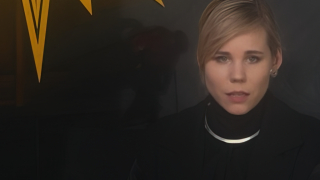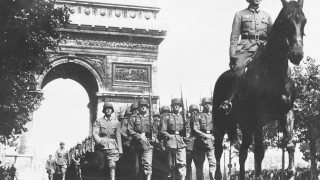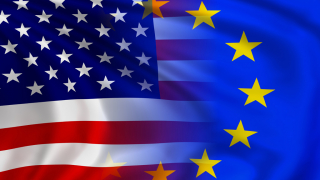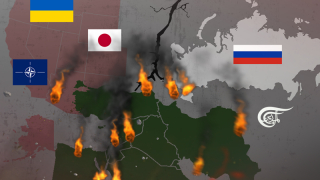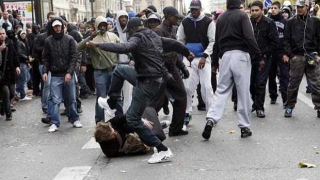France and the Migration Question
20.12.2017
A few nights ago, I was walking along a street in Paris, and a young African approached me and said to me in French, “Pourriez-vous me donner de l'argent pour la nourriture?” and as my French is poor to non-existent, I replied politely in English, “I am sorry, but I do not understand French.” He looked at me in astonishment, probably thinking I was North African, because even though I am Mexican American, like many men of my culture we have that ancient Iberian look. Then he said sharply to me “I am hungry! I am hungry!” I turned quickly and looked at him in a hard way, and I walked away into the rain. I say I was ashamed as I walked away from that young Black African who most likely came from Chad, Libya or the Republic of Congo.
There is deep irony in my observation about the young African migrant and myself, for as a boy I saw hundreds of Mexicans crossing the border illegally as they forded the Rio Grande River into Texas. I was either on horseback with my father and uncles watching families wade across the brown, muddy water to climb up the shores near Laredo and beyond. When my father had a pick-up truck, he would gather the families or single men who had climbed up the steep dirt slope among tufts of cactus, and he would offer them offer them rides to safety. That was my first experience of the migrant question within my own question, before I had this simple, but tragic, encounter with the young African who only wanted money from me, so he could eat that night.
Currently there is a well-known split in this period of European history, among the great European powers as well as the secondary partners of the EU, as to how to grasp the Migration Question, while ignoring the very factual historicity that past colonial aspirations, economic and labor exploitation have brought about the current twenty-first century crises of thousands of migrants from Africa and North Africa moving like a deepening whirlwind onto the European continent.
Regardless of whether there are quotas or not, the Africans and the Muslims from the war-torn regions of Syria, Afghanistan and Yemen are to begin a greater epoch of European culture not seen since the fall of the Roman Empire. Moreover, the capitalistic wars of the modern European nations with their infusion of militarist influence of the United States of America have also contributed to migrant crises from Athens to Paris.
Recently as reported by The Guardian's online edition, “Divisions over migration marred a show of unity at an EU summit on Thursday, after Germany and Italy hit back at plans that could spell the end of mandatory refugee quotas. Germany, Italy and the Netherlands have led criticism of a proposal from the European council president, Donald Tusk, who has described refugee quotas as 'divisive and ineffective.' ”
The Greek Prime Minister, Alexis Tsipras, whose country has struggled to manage large numbers of refugees and migrants, criticized Tusk’s comments as “aimless, ill-timed and pointless”.
Arriving at the EU summit in Brussels, the German chancellor Angela Merkel declared there “cannot be selective solidarity” among EU member states. Germany gave refuge to more than 1 million asylum seekers in 2015 and has been championing the policy of sharing refugees through quotas, when numbers could overwhelm other countries. “We need solidarity not just in regulating and steering migration,” Merkel added, “but we also need internal solidarity.”
But is it just solidarity needed by EU leadership regarding the Migration Question for the current crisis in Europe? Are there not even culture observations that even go deeper than quotas and even human rights issues regarding the thousands of refugees or migrant peoples who have crossed over not only from the beaches of Africa but also from the Mycale Strait?
What about the education disparity, the language barriers and religious difference, and more subtle norms of human relationships that cannot simply be overcome by regulated quotas and ‘humanitarian’ gestures of kindness towards those seek refuge from war and oligarchical repression and decadence created by a history of Western capitalism?
As we know, revolution and civil war are usually the more final outcomes of such migration mayhem. Then there is the question of such a historical migration crises that can also play a role in leading to a world war. Such is the more severe penalty paid for the imperialist nations’ crises since the time of the dispersions of ancient peoples, who because of a failure to stop the exploitation of foreign labor along with the exploitation in terms colonial military conscription, all which leads to a certain kind of implosion from within the imperialist countries and those former colonial states they created for purposes that have nothing to do with world economic parity, for it is the ruthlessness of economic advantage which is the first and most vital factor of dominating those people from other shores.
We see in France, and especially in Paris, the ever-growing expansion of the migrant sweeps and the migrants’ anger and confusion in their inability to understand the great culture norms that were part of the French Revolution, and are still an ongoing historical process affecting the Western peoples’ daily lives regardless if they are conscious of it or not.
In July of this year 2017, as reported by LA MATINALE, it was understood that the “President of France during the mini-summit of heads of State of European and African government which he had summoned to the Elysee, had come to the conclusion previously,, “after the meeting of La Celle-Saint-Cloud (Hauts-de-Seine) which he had sponsored between the Libyan enemy brothers, the internationally recognized Prime Minister Fayez Al-Sarraj and Marshal Khalifa Haftar , the strong- man of the East, the French president had mentioned the possibility of opening, when feasible. "hot spots" in Libya, that is to say, registration and identification centers to distinguish political refugees from economic exiles”.
In other words, there will be a draconian demarcation line drawn as to who are ‘legitimate’ “political refugees” from those who are fleeing extreme poverty and thus part of thousands upon thousands who will be known as “economic exiles”. These are crises of such magnitude we are witnessing in the cities of Europe, especially in Paris, when you can walk down almost any street among the arrondissements, and you will see the migrants huddled in an alleyway, near a trash bin or clumped down in despair along the most fashionable clothing department stores in Paris proper.
Such is the Paris of today, such are the migrants in the thousands, where you would be hard-pressed to distinguish one from the other as either a political refugee or an economic exile, for in fact they are one and the same.
The most poignant image for me regarding the issue of the migrant crisis here in Paris, is when I run mornings and early afternoon on the Champ de Mars, and I see the young African men selling their metal replicas of the Eiffel Tower among the well-fed, middle-class and upper-class tourists who come to pay sincere homage to the great art monument of the City of Light, and how the African men, now reduced to hawkers, must debase themselves in order to have a meal at the end of the day, or pay for a room of squalor.
And now, as I walk along a street in Paris, and a young migrant asks me for a few Euros, how do I respond to such a request in this city that is a home for any writer who takes his craft seriously? In Paris one learns elegance, but in Paris one also learns about adversity and struggle as well.


